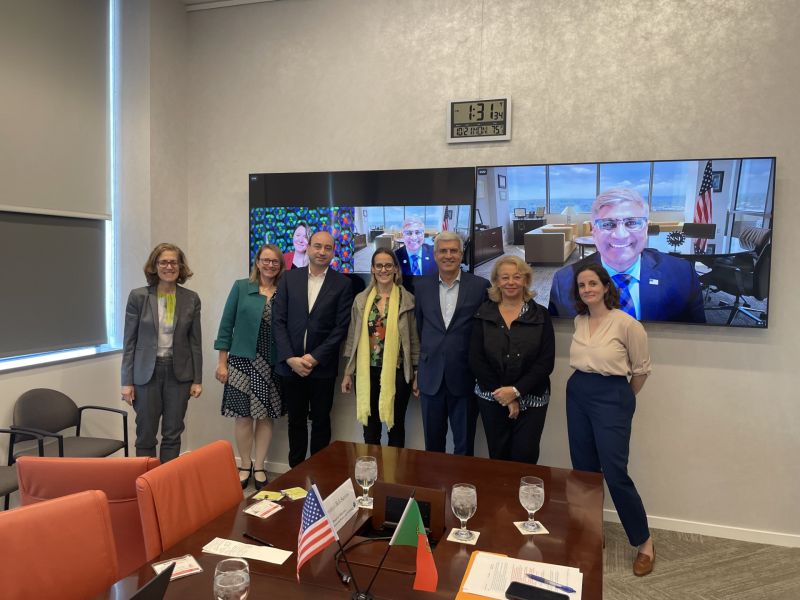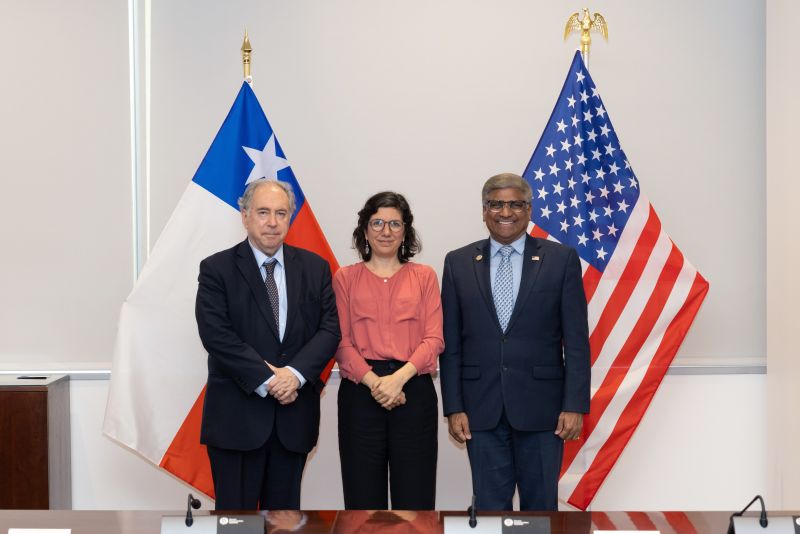Last week, Director Sethuraman Panchanathan engaged in meetings that deepened U.S. National Science Foundation's relationships with current international partners and expanded NSF's global network.
On Monday, Oct. 21, Panchanathan and NSF representatives virtually greeted a senior delegation from NSF counterpart funding organizations in Portugal. The delegation was led by Maria Madalena dos Santos Alves, president of the Fundação para a Ciência e a Tecnologia, and António Grilo, professor and president of Agência Nacional de Inovação. The meeting focused on Portugal's interest in learning more about how NSF sets priorities, integrates research and innovation, and approaches research security. Portugal's willingness to learn from the U.S. and deploy similar policies and procedures, especially research security guidelines and guardrails, will ease the collaboration between U.S. researchers and Portuguese counterparts.
On Thursday, Oct. 24, Panchanathan met with Chairman Martin Galstyan of Central Bank of Armenia and delegates at NSF headquarters. The director and the Armenian delegation discussed opportunities for U.S.-Armenia collaboration and the potential of a U.S.-Armenia Science Foundation.

Later in the day, the director met with Chile's Minister of Science, Technology, Knowledge and Innovation, Aisén Etcheverry Escudero, and Ambassador of Chile to the United States, Juan Gabriel Valdés. The director applauded Chile's continued leadership in astronomy and explored potential opportunities to enhance NSF-Chile collaborative efforts. NSF's partnership with Chile allows for groundbreaking research in fields like astronomy through the NSF-U.S. Department of Energy's Rubin Observatory, collecting more data about the universe than all previous telescopes combined.

The director also met Finance Minister of India Nirmala Sitharaman to discuss the rapid progress of U.S.-India science and technology collaborations.
That same day, the Biden-Harris Administration issued a National Security Memorandum (NSM) on Artificial Intelligence to further drive U.S. leadership in the development of safe, secure and trustworthy AI. The NSM doubles down on the National AI Research Resource pilot, launched in January 2024. Since then, NSF and partners have been working rapidly to connect a broad cohort of researchers and educators with essential AI research resources. The initiative lays the foundation for an AI research ecosystem where ideas and innovations from a diverse talent pool can thrive and benefit all Americans.






